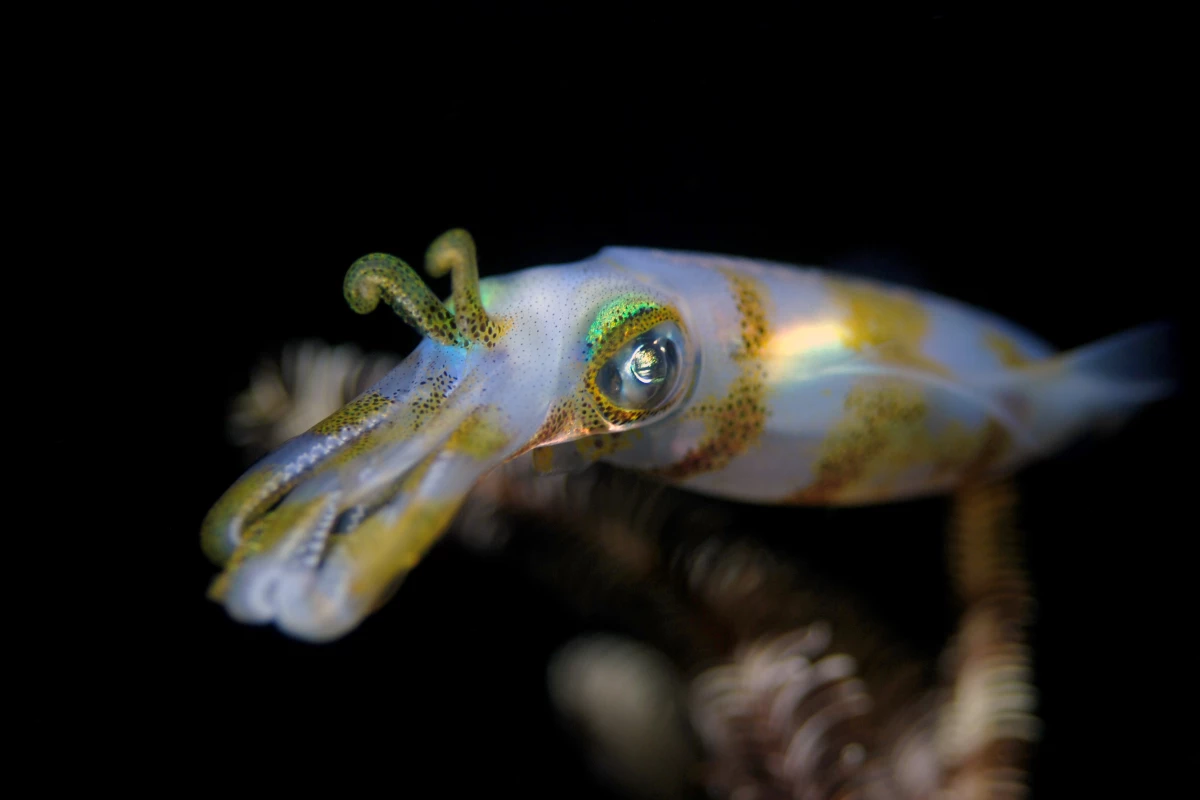New research led by Wen-Sung Chung and Justin Marshall of the University of Queensland is shedding new light on the complexity of squid brains. Using MRI scanning to examine the brain of the of the reef squid Sepioteuthis lessoniana, the researchers have produced a new map of neural connections that improves our understanding of their behavior.
The cephalopods are widely recognized as the most intelligent of mollusks, but how do they rate when they are competing against something other than clams? Cephalopods show all sorts of complex behavior, like being able to recognize patterns, solve problems, communicate through signals, and camouflage themselves in different textures and colors, despite being colorblind.
"We can see that a lot of neural circuits are dedicated to camouflage and visual communication," says Chung. "Giving the squid a unique ability to evade predators, hunt and conspecific communicate with dynamic color change."
But just how complex are these neural circuits? The answer may lie in the maps made by the new MRI scans.
"This the first time modern technology has been used to explore the brain of this amazing animal, and we proposed 145 new connections and pathways, more than 60 percent of which are linked to the vision and motor systems," says Chung. "The modern cephalopods, a group including octopus, cuttlefish, and squid, have famously complex brains, approaching that of a dog and surpassing mice and rats, at least in neuronal number. For example, some cephalopods have more than 500 million neurons, compared to 200 million for a rat and 20,000 for a normal mollusk."
Chung says that this complexity may be an example of convergent evolution, where very distantly related animals, like dogs and squids, evolve similar solutions. It's why the eye of the squid is remarkably similar to that of the human eye, even though the two parted ways in evolutionary terms about 560 million years ago.
"The similarity with the better-studied vertebrate nervous system allows us to make new predictions about the cephalopod nervous system at the behavioral level,” says Chung. "For example, this study proposes several new networks of neurons in charge of visually-guided behaviors such as locomotion and countershading camouflage – when squid display different colors on the top and bottom of their bodies to blend into the background whether they are being viewed from above or below.
“Our findings will hopefully provide evidence to help us understand why these fascinating creatures display such diverse behavior and very different interactions.”
The research was published in iScience.
Source: University of Queensland





